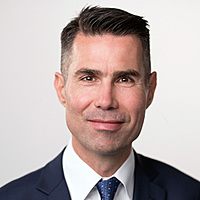Should investors fear a recession? No. Here’s why.
Do economic recessions lead to corporate earnings declines?
It’s natural to think that economic recessions produce declines in corporate earnings, and that falling corporate earnings are, in turn, bad for equity investors.

The investment community often draws a straight line of causality from recessions to equity markets via corporate earnings. For that reason, the financial press allocates a great many column inches to economic releases and prognostications. Let’s see what history tells us.
Do recessions cause a decline in corporate earnings?
There have been three recessions in the United States in the last thirty years – 2001, 2008 and 2020. S&P500 corporate earnings in aggregate declined in all three of those periods. Yes, recessions have led to earnings declines, though it must be noted that we have a sample size of just three.
However, corporate earnings have fallen in eight of the last thirty years. As noted above, three of those years were recessions, so five were years of economic growth.
More often than not, years when corporate earnings fell were years of economic expansion.
Do earnings declines lead to equity market declines?
As noted in the preceding section, US corporate earnings in aggregate have declined in eight of the last 30 years, a frequency that would surprise many people. How bad were those years for equity investors?
Of the eight years of declines in US corporate earnings over the last three decades, the S&P500 index fell in four of those eight years and rose in the other four.
Looking in reverse
The US equity market has declined in seven of the last thirty years. What conditions were present in those years? Two of those years were recessions, but five of them were years of economic expansion. In three of those years corporate earnings fell, while earnings grew in four.
Put away those newspapers and economic crystal balls
Clearly, the simple, causal relationship that seems so intuitive between recessions, corporate earnings and equity markets simply isn’t evidenced by history. There are always many variables at work besides GDP. Even if you knew for certain that a recession was around the corner, or corporate earnings were heading for a decline, it wouldn’t be any more helpful than tossing a coin.

Are economic recessions and earnings declines irrelevant to the equity investor?
Not always. There are some businesses whose shareholder value may suffer lasting damage during recessions when their earnings decline sharply. These include banks as well and highly indebted businesses who may have to raise new equity at distressed prices. Some businesses who have inherently highly cyclical earnings may feel they have to cut costs aggressively when their profits are under pressure. The business may lose talented staff in the cost cutting process in ways that set it back in the long term.
When not to worry about earnings declines
For a company to become more valuable over time, earnings need not hit record levels each and every year. At Aoris, we pay a great deal of attention, during period of earnings weakness, to the decisions by a particular company’s management about which expenses to cut, and whether the mindset is to maximise short term or long-term outcomes.
Take Graco, a maker of highly specialised fluid handling equipment, one of the 15 companies owned in the Aoris International Fund. During the GFC, management didn’t cut any staff or reduce planned spend on product development, knowing that some of their peers would. These ‘stay the course’ decisions helped the company grow market share immediately following the GFC and saw a very strong rebound in earnings. Graco followed the same long-term approach through the COVID period of suppressed activity.
Summary
The threat of an economic recession or an impending decline in corporate earnings is not, by itself, a reason to be fearful of equities, provided you avoid the most fragile and vulnerable businesses. At Aoris, we own 15 businesses that are growing, highly profitable and both conservatively managed and conservatively financed. Find our more on our web site.
1 topic

